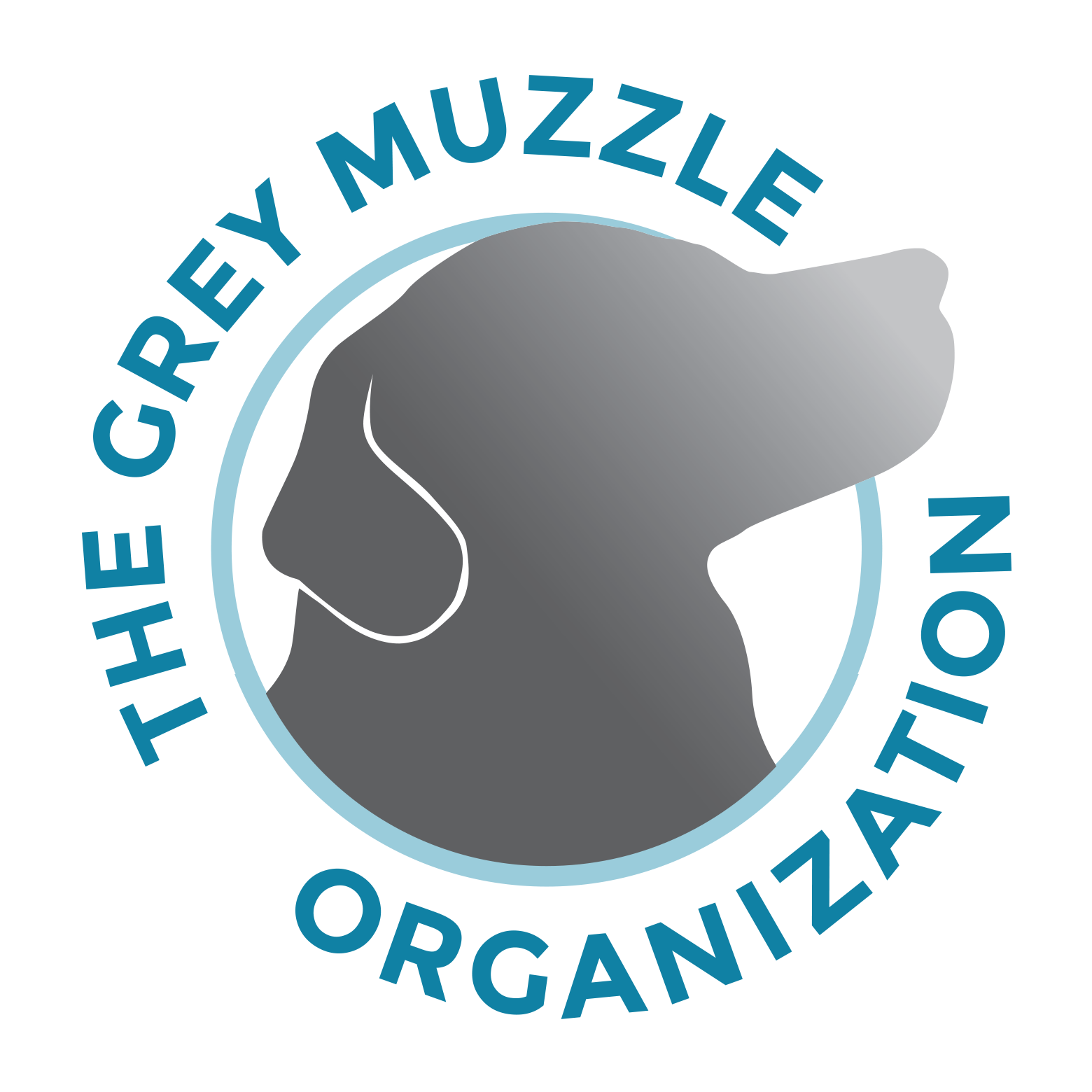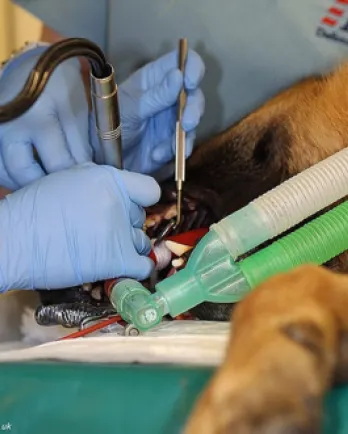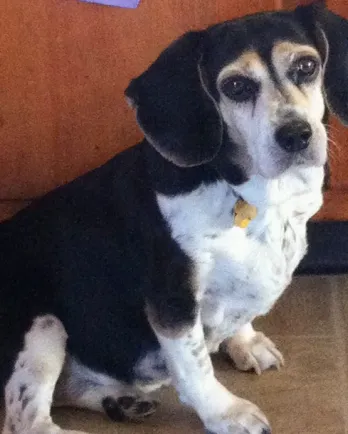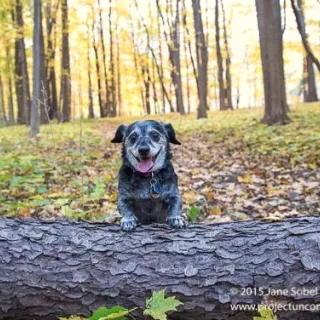Helping Shelters and Rescues Care for Senior Dogs
Before homeless senior dogs can get a second chance with loving adopters, shelters and rescues must first get or keep the dogs physically and emotionally healthy enough to meet potential adopters. That may mean good food, behavioral and physical rehabilitation, a comfy bed, and a lot of play and petting, but it also means medical care, and this care can cost more than shelters and rescues can afford.
Over the past seven years, The Grey Muzzle Organization has offered grants so that shelters, rescues and other nonprofits can improve the health of homeless senior dogs, increase their chances of being adopted, keep them out of shelters and in their own homes, and enable them to live out their final days with comfort and dignity. Helping pay for medical care for adoptable senior dogs is just one of the ways that Grey Muzzle grants help, but an important one.
Shelters and rescues use the funds to address a variety of health problems (often previously untreated) for animals in their care. Cancer, vision problems, and orthopedic injuries can be among the most expensive conditions to treat, but medical costs are also a factor with relatively healthy and adoptable senior dogs. The lives of many dogs are transformed just by helping organizations pay for routine procedures and treatable medical conditions – some of the most common of which are:
| Photo credit: Defence Images / Foter.com / CC BY-NC-ND |
Dental
In a shelter environment, dental disease is a double-whammy: it can be too expensive for even the most well-funded shelters to treat, and the cost is off-putting to prospective adopters. Dogs suffering the effects of dental problems may also appear less friendly and have bad breath.Dr. Fred Metzger, a leading veterinary specialist on senior pet care, warns, “Dental disease is epidemic in older pets...the older dogs and cats that have neglected dental disease are just time bombs ticking...As dental disease progresses, you‘re going to get bacteria in the blood stream, and that‘s going to cause major issues with the organs.”
Skin conditions
Judith Piper, founder of Old Dog Haven, says that skin problems and allergies are common reasons for shelters to ask her to take a dog. Skin conditions make a dog very unappealing to adopters. The problem requires more than money to fix – it requires dedicated care and nursing, with treatments such as frequent medicated baths and special diets. However, the need for medications and special food means that affording this care is also an issue.
Blood work
Blood work is critical to diagnosing many common diseases in older dogs, including kidney disease, diabetes, and hypothyroidism. “We can help dogs with problems like hypothyroidism, but we need blood work to diagnose it,” explains Dr. Metzger. However, like dental work, blood work is too expensive for most shelters. The consequence for shelters, is limited knowledge for determining the best way to help the dog.
In order to have blood work done for the dogs in their care, rescue organizations rely upon funding from grants and donations. Shawna, a 10-year-old Beagle, is just one of the dogs to have benefited from Grey Muzzle grants making veterinary care of this sort possible. Grey Muzzle grantee Penny Angels Beagle Rescue (PABR) rescued Shawna –who had lived her entire outdoors– and found her an adoptive home, after first providing her with a veterinary exam that included blood work. (Read how Grey Muzzle also made a difference in the life of PABR's Chance.)
When shelters and rescues can afford this care for their senior dogs, it makes a huge difference. “We could make dogs more adoptable with just the basics – blood work and dentals," Cecily Joque, Animal Behavior Coordinator at The Humane Society Tacoma and Pierce County, believes.
Arthritis
Senior dogs often require medications to manage the pain of arthritis. Improving their condition, however, starts with something as simple as a bed. Lying on cement floors in shelters is not only uncomfortable for geriatric dogs but bad for their adoption prospects. As dogs get stiffer, more uncomfortable and less active, they might not “show” as well to potential adopters, compared to a lively younger dog. Cecily Joque explains that, “The geriatric dogs get stiff and sore. The beds that we have are not the most expensive, but the dogs love them, and it gets them off the pressure points.” Because there are usually not enough to go around for all senior dogs, Grey Muzzle's Bed Fund was established to provide free beds to shelters so that old dogs don't need to sleep on cold, hard floors.
Mass removal
Senior dogs tend to have fatty tumors, skin tags or warts, and other benign masses that make them less attractive to adopters, not only cosmetically, but because adopters might be worried about cancer. Typically these can easily be removed, but again, money is involved.
Dr. Metzger points out that, “For a shelter to do all these things is impossible.” Not without help, that is. While some older dogs never make it out of a shelter due to terminal illness, it is particularly heartbreaking when it is because of a lack of funds to perform routine procedures and address treatable conditions. With the help of funds for medical care, shelters and rescues are able not only to save and improve the lives of senior dogs with serious conditions, but make all their older dogs more healthy and adoptable.
The Grey Muzzle Organization improves the lives of at-risk senior dogs by providing funding and resources to animal shelters, rescue organizations, sanctuaries, and other nonprofit groups nationwide. For information about all of the wonderful organizations that Grey Muzzle supports, see Who We Help.




